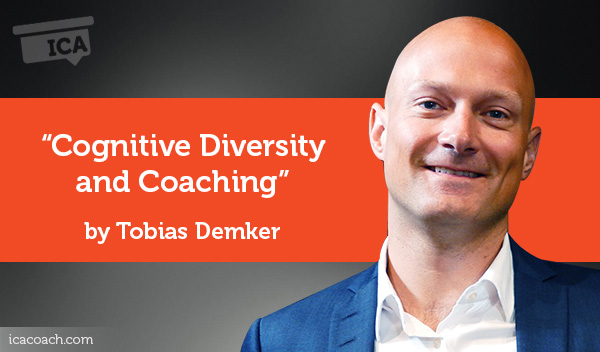
Research Paper By Tobias Demker
(Leadership coach, CHINA)
Introduction
Robert was frustrated with his boss, and he didn’t seem to be able to shake it off. Eric’s way of confronting him at work meetings was really getting on his nerves. He knew that he was of a different character with other qualities than Eric. In fact, that was one of the reasons he was brought on the team. Still, Robert was now silently cursing him for being so critical and arrogant. He felt that the issue had come to breaking point and that Eric wasn’t even willing to change a bit. He was now considering alternatives for his future work place.
The case above illustrates a quite common situation in a work place, or many relationships between people with very different characteristics. Note that Robert is fully aware of the benefits of diversity, but still can’t handle the frustration. In this paper, I want to explore some of the benefits and difficulties with cognitive diversity, and how it can be applied to coaching.
We can see lots of barriers for diversity around us on a daily basis. There are conflicts and debates related to differences in ethnicity, gender, religious beliefs, culture, etc. Problems and opportunities regarding such issues are on the agendas for discussions for various stakeholders in our societies.
Diversity is however much more than what meets the eye. It is not limited to one type. Rather it is generally divided into two broad categories: A surface level, and a deeper level. The deeper level includes differences in ideas, experience, habits, personal character, personal interests etc. 1
Imagine two people describing the same trip they’ve been on, to you. There is a chance that you will picture two very different experiences after listening to their stories. One might be telling you what they did at what time, and telling you about what they saw in some detail. The other person might tell you about the people they met, and what the temperature was like.
People see things in different ways, and we focus our attention on different aspects, without really paying attention to it. It is these differences in the way we see and approach things, that I here refer to as “cognitive diversity”.
Cognitive styles are psychological dimensions that represent consistencies in how individuals acquire and process information, and guide their performance on information processing, decision making, problem solving, and creativity tasks. 2
In this article the purpose is to explore ideas and concepts of how cognitive diversity can be applied to coaching. There are studies showing how cognitive diversity can have an impact for team performance. Therefore, it is interesting to consider cognitive diversity when attempting team/group coaching. I will also explore what kind of implications it can have for the learning and development of individuals in one to one coaching.